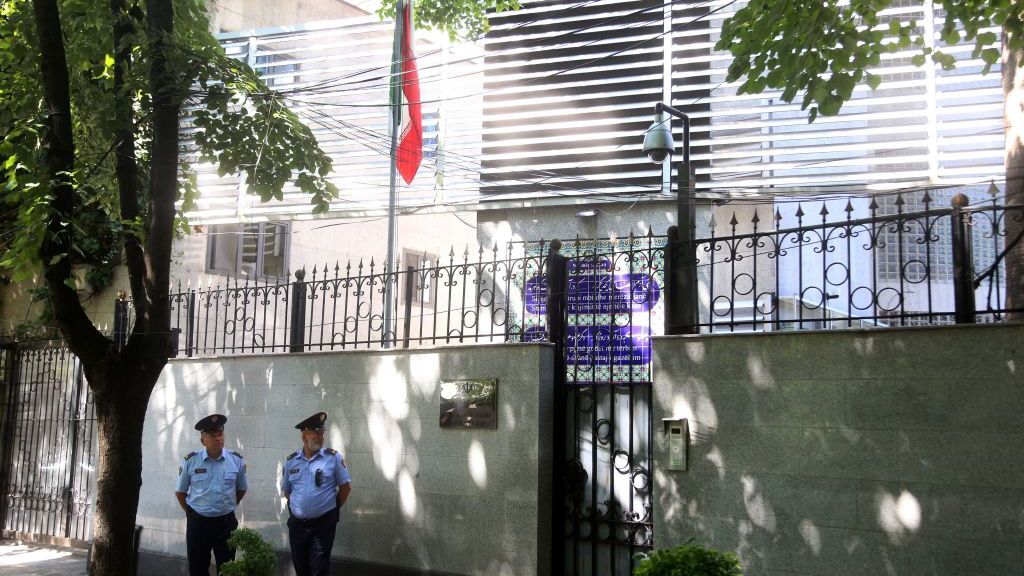Defending the defenders
Inside the Enterprise: MPs question the armed forces' readiness to deal with cyber security attacks. Businesses should pay attention too.

The Latin saying, "Quis custodiet ipsos custodies", or "who guards the guards", usually appears in debates about whether those in authority have too much power over ordinary citizens.
But a report from the House of Commons' Defence Committee suggests a more literal meaning: who is protecting our protectors?
It seems that, when it comes to the UK armed forces and cyber security, they are not protected well enough. Over the last decade, most countries' militaries have become more reliant on IT, and the UK's forces are no exception.
Should systems suffer a sustained cyber attack, their ability to operate could be fatally compromised
This poses some risks both to military operations, and the day to day functioning of the armed forces. If military defence systems lack proper protection from cyber security attacks, a relatively low-risk, low-cost malware infection could wreak havoc on a par with an outright military assault. This could either be a standalone threat, or a precursor to the type of overt, armed action that security experts call a "kinetic" attack.
The move towards greater use of computer systems, cheaper Common Off The Shelf (COTS) technology in computing and telecoms, and the greater use of outsourcing and civilian contractors, is creating chinks in the forces' electronic armour.
The Committee did not mince its words, and it is worth quoting some of the report in detail.
Get the ITPro daily newsletter
Sign up today and you will receive a free copy of our Future Focus 2025 report - the leading guidance on AI, cybersecurity and other IT challenges as per 700+ senior executives
"The evidence we received leaves us concerned that with the armed forces now so dependent on information and communications technology, should such systems suffer a sustained cyber attack, their ability to operate could be fatally compromised," the MPs wrote. "It is not enough for the Armed Forces to do their best to prevent an effective attack."
And it is not just a question of hackers disabling administrative systems, or communications.
"Perhaps the most worrisome scenario of all is a cyber attack that could render dysfunctional main combat units such as airplanes or ships, or that could limit their operational capability or reliability. [...]," warned MPs.
"Moreover the increased utilisation of robotic devices such as drones, battlefield robots and UAVs over the battlefield has numerous advantages, but also creates a new type of information security challenge that is not yet fully understood, studied or realised."
The Committee singled out parts of the defence establishment for praise, particularly the joint work being done by the military and the private sector.
But the message is that the MoD, as well as the individual services, need to do more to guard against a cyber security attack, and to plan their military defence response if one happens.
Continues over page.
-
 Should AI PCs be part of your next hardware refresh?
Should AI PCs be part of your next hardware refresh?AI PCs are fast becoming a business staple and a surefire way to future-proof your business
By Bobby Hellard
-
 Westcon-Comstor and Vectra AI launch brace of new channel initiatives
Westcon-Comstor and Vectra AI launch brace of new channel initiativesNews Westcon-Comstor and Vectra AI have announced the launch of two new channel growth initiatives focused on the managed security service provider (MSSP) space and AWS Marketplace.
By Daniel Todd
-
 Capita tells pension provider to 'assume' nearly 500,000 customers' data stolen
Capita tells pension provider to 'assume' nearly 500,000 customers' data stolenCapita told the pension provider to “work on the assumption” that data had been stolen
By Ross Kelly
-
 2022 Public Sector Identity Index Report
2022 Public Sector Identity Index ReportWhitepaper UK Report
By ITPro
-
 UK, US condemn Iran for ‘unprecedented’ cyber attack against Albania
UK, US condemn Iran for ‘unprecedented’ cyber attack against AlbaniaNews The Balkan nation has cut ties with Iran following the hack, which took down national infrastructure and exposed government information
By Rory Bathgate
-
 Gumtree site code made personal data of users and sellers publicly accessible
Gumtree site code made personal data of users and sellers publicly accessibleNews Anyone could scan the website's HTML code to reveal personal information belonging to users of the popular second-hand classified adverts website
By Connor Jones
-
 Pizza chain exposed 100,000 employees' Social Security numbers
Pizza chain exposed 100,000 employees' Social Security numbersNews Former and current staff at California Pizza Kitchen potentially burned by hackers
By Danny Bradbury
-
 Majority of UK's top business leaders are failing to manage supply chain security risks
Majority of UK's top business leaders are failing to manage supply chain security risksNews New findings from a DCMS review have sparked concern in government which could see new laws introduced to protect Britain's digital supply chains
By Connor Jones
-
 83% of critical infrastructure companies have experienced breaches in the last three years
83% of critical infrastructure companies have experienced breaches in the last three yearsNews Survey finds security practices are weak if not non-existent in critical firms
By Rene Millman
-
 Identity Automation launches credential breach monitoring service
Identity Automation launches credential breach monitoring serviceNews New monitoring solution adds to the firm’s flagship RapidIdentity platform
By Praharsha Anand